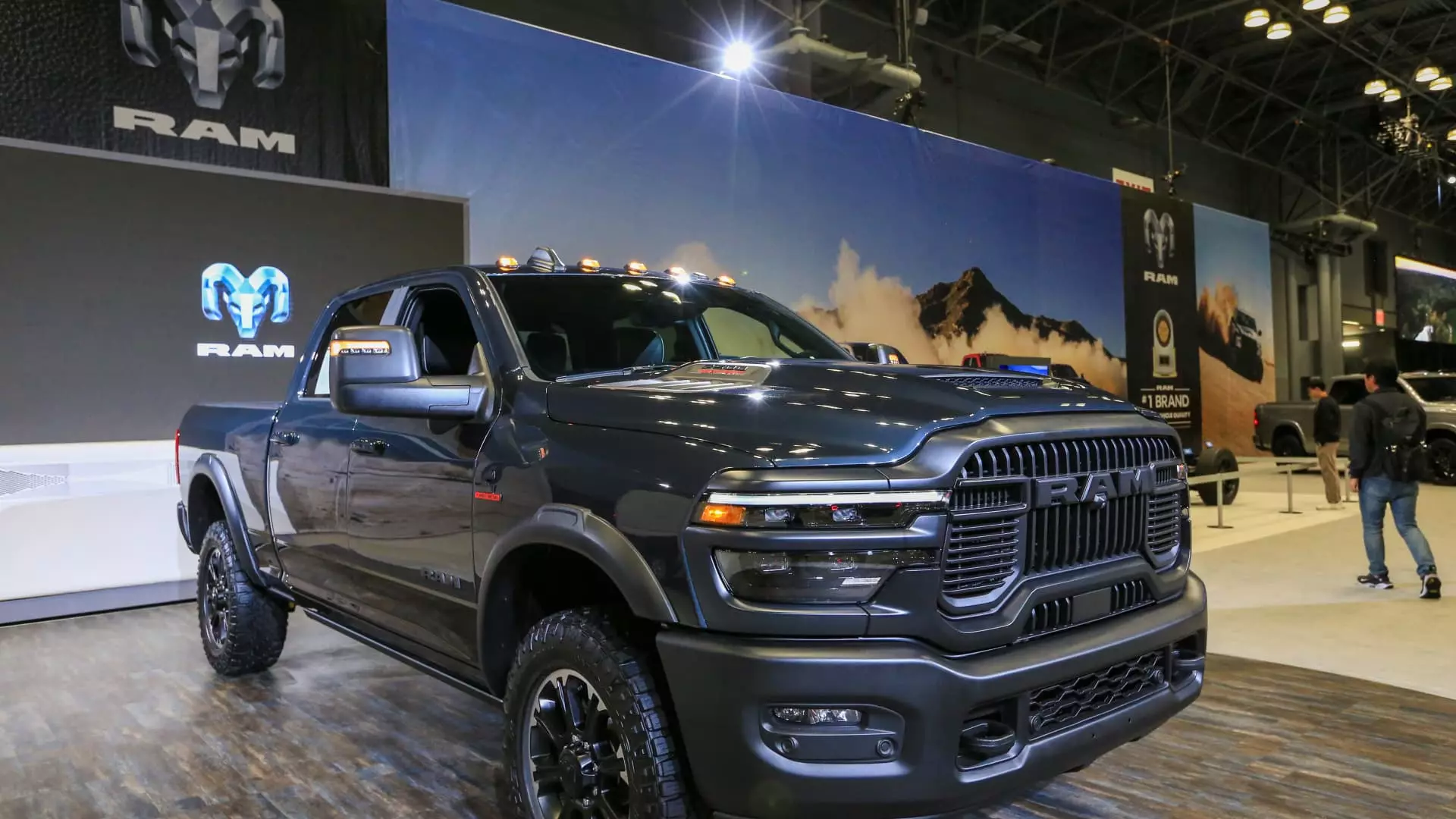In a bold and unexpected pivot, Ram Trucks has announced a revolutionary 10-year or 100,000-mile powertrain warranty for its 2026 vehicle lineup as part of an ambitious overhaul strategy orchestrated by Stellantis. This generous warranty thrusts Ram into a competitive landscape dominated by heavyweights like Ford, GMC, and Toyota, all of which have traditionally provided more standard five-year or 60,000-mile warranties. The move heralds a new era for truck buyers who increasingly find themselves investing substantial amounts in vehicles that they plan to keep well past the typical warranty periods.
Ram’s CEO, Tim Kuniskis, has insightful thoughts on the necessity of this change, underscoring that while modern truck buyers finance their vehicles for longer terms—often up to seven years or more—warranties have remained stagnant, leaving customers feeling unprotected. It’s a narrative that reveals a fundamental disconnect between the auto industry’s offerings and the evolving needs of consumers. By addressing this gap with a robust new warranty, Ram not only strengthens its market position but also endeavors to retain existing customers while enticing former owners back into the fold.
Pricing and Accessibility Issues
The automotive landscape has drastically shifted over the years, especially for full-size pickup trucks, which have seen soaring prices that are leaving many would-be buyers on the sidelines. As cars steadily increase in price, the financing terms have stretched, leaving consumers vulnerable to investing money without adequate reassurance. Kuniskis’ reflections reveal an understanding of the economic pressures facing buyers today. However, one might question whether such a bold move can truly alter the landscape when high costs remain an overarching barrier.
The reality of modern vehicle ownership shines a spotlight on the complexities of affordability. While Ram’s long warranty may cultivate trust and security, it is essential to consider that many consumers still face hefty price tags when looking to buy a truck. Are they genuinely able to benefit from such a warranty when the initial purchase feels too burdensome? Overhauling warranties is only one piece of an intricate puzzle—addressing affordability remains crucial.
Strategic Risks of Long-Term Warranties
Diving deeper into the implications of offering longer warranties, one cannot overlook the potential risks involved for manufacturers. The manufacturing economy operates on thin margins, and providing extensive warranties can cost companies significantly, especially if widespread quality issues arise within the fleet. Ram’s leadership seems acutely aware of this risk, yet they have tentatively embraced it, asserting that the “perceived value” to the customer outbalances financial exposure.
This perspective raises an important philosophical question: Does consumer perception hold more weight than actual quality? In a landscape where buyer expectation often sways purchasing decisions, brands that dive headlong into emphasizing consumer quality assurance might actually be onto something valuable. However, as history shows, a misstep in quality might lead to catastrophic backlashes. Thus, we find ourselves at a crossroads where perception may rapidly alter if the product does not deliver.
Broader Implications for the Industry
Moreover, the shake-up might not just be confined to Ram Trucks. Should this new warranty be well-received, it stands to set a competitive benchmark that urges other manufacturers to reconsider their warranty structures. This could well trigger a ripple effect influencing broader trends across the automotive sector, as brands feel the pressure to keep pace. Yet here lies a remarkable paradox: will consumers see this as genuine innovation or just a reactive measure to an increasingly competitive marketplace?
Indeed, the auto industry is marked by a cycle of adaptation and responsiveness to trends and consumer behavior. As Ram boldly steps forward to reimagine warranties, it’s essential for other manufacturers to remain vigilant, understanding that the customer’s voice echoes loudly amidst an evolving marketplace. Ram’s potential triumph—or folly—will not only trailblaze a path for its own future but could redefine consumer expectations across the board.
Ram Trucks’ daring initiative is more than just an enhanced warranty; it is a statement of intent in an industry screaming for innovation. As they grapple with pricing, risk, and market competition, the automotive community must reflect on what this shift means in terms of consumer trust and expectations—a turn of events that could reshape the dynamics of truck ownership as we know it.



Leave a Reply